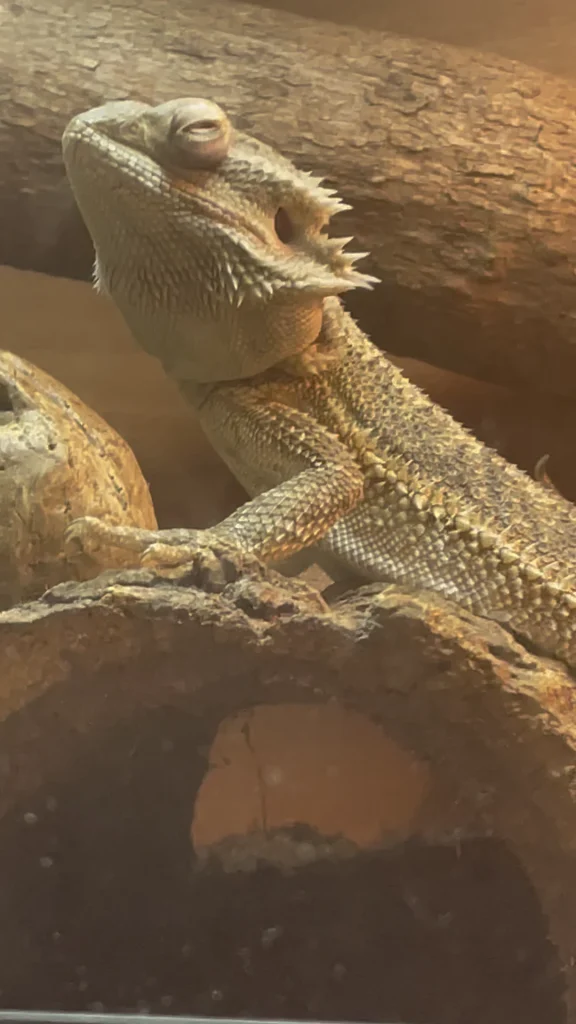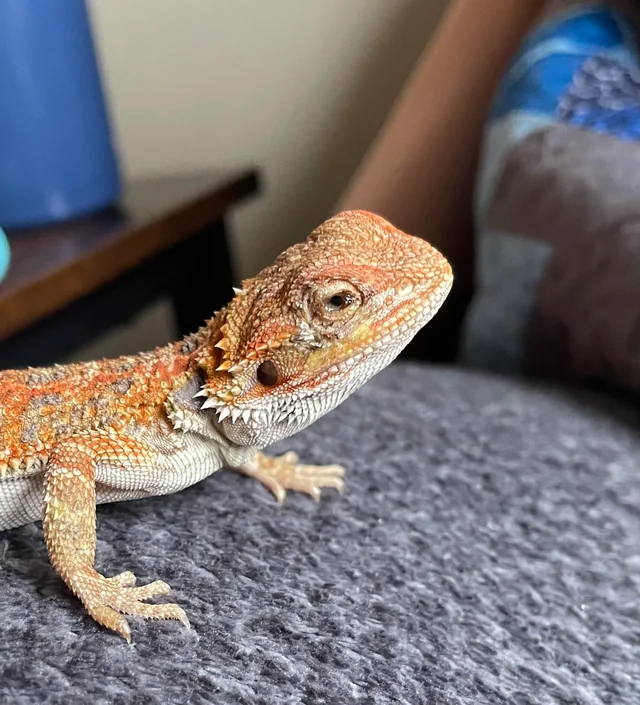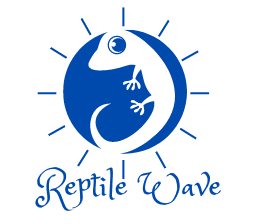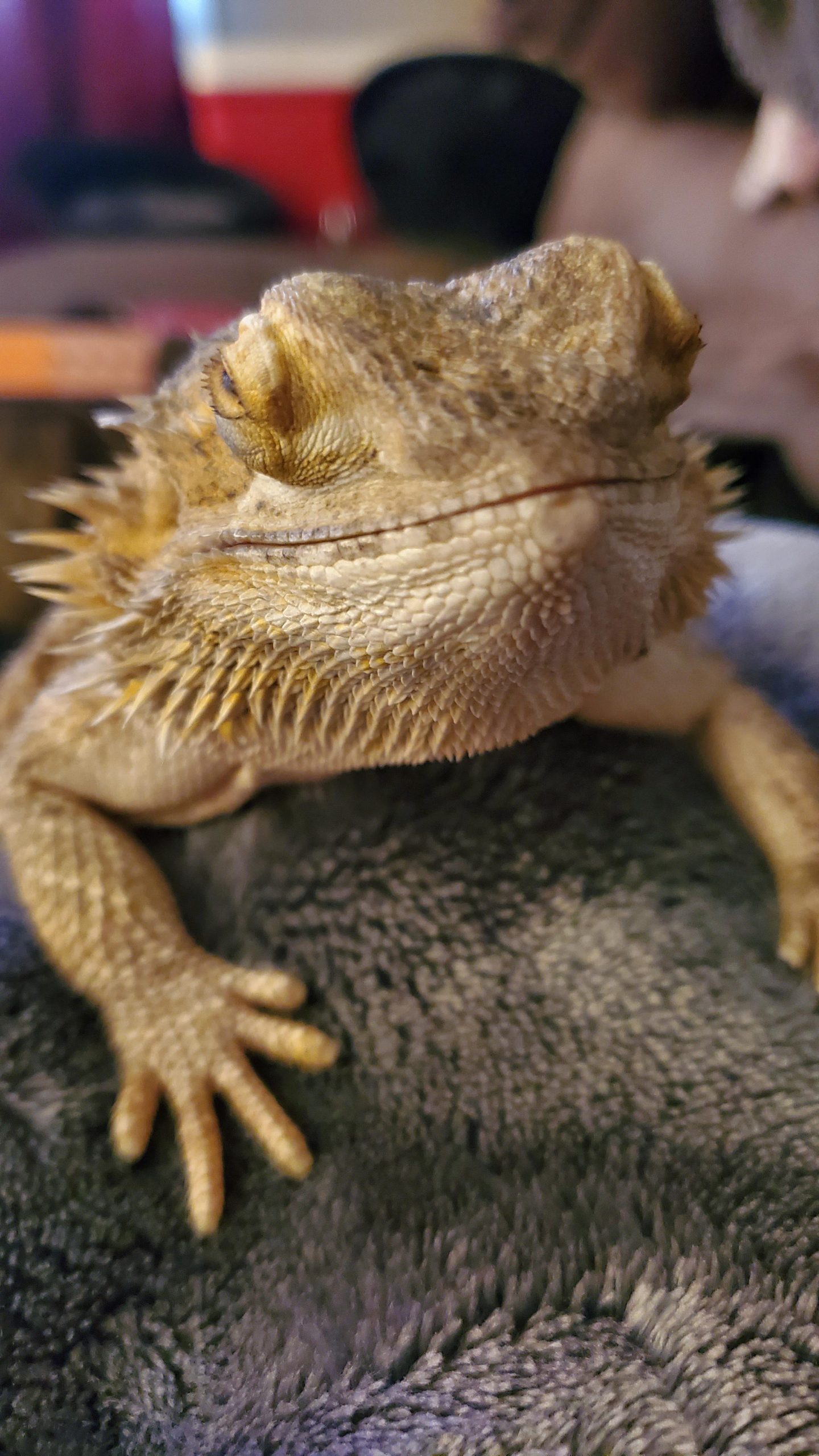Have you noticed your bearded dragon has droopy eyes? Don’t worry; I’ve been in your shoes, and it’s a common issue that can often be fixed.
Bearded dragons with droopy eyes have saggy, less alert eyes. Instead of being wide open, their eyes appear partially closed.
Bearded dragon droopy eyes can happen due to dehydration, poor diet, infections, parasites, or incorrect lighting and temperature in their habitat.
The good news is, with some simple changes like improving hydration, adjusting their diet, or fixing their habitat setup, you can help your pet feel better.
In this guide, we’ll walk through the causes of bearded dragon droopy eyes and the easy steps you can take to solve it.
Common Causes of Bearded Dragon Droopy Eyes

If you’ve noticed your bearded dragon’s eyes looking droopy, it’s important to find out why. Let’s explore what might be causing this and how you can help your pet feel better.
1. Dehydration
Dehydration reduces the fluid levels in the body, affecting various organs, including the eyes.
Without enough hydration, the eyes may not stay lubricated. They could dry out and droop.
Moreover, dehydration can cause weakness and health issues. It makes it harder for your bearded dragon to maintain normal eye function.
Signs of Dehydration
- Sunken Eyes: The eyes may appear sunken or hollow.
- Dry Skin: The skin might look dry and flaky.
- Lethargy: Your bearded dragon may become less active or sluggish.
- Loss of Appetite: They may eat less or show little interest in food.
- Sticky Mouth: The inside of the mouth may feel sticky or dry.
2. Poor Diet
A balanced diet provides essential nutrients that support overall health, including eye health. Bearded dragons need a mix of protein, vitamins, minerals, and fiber to stay healthy.
A well-rounded diet helps maintain proper hydration, support immune function, and keep tissues, including those in the eyes, healthy.
Foods That Might Lead to Droopy Eyes
A lack of calcium can lead to metabolic bone disease, affecting the eyes.
Insects that are not gut-loaded or dusted with vitamins can cause deficiencies.
Foods high in phosphorus but low in calcium can harm health. They can cause droopy eyes by disrupting the calcium-phosphorus balance.
3. Eye Infections
Eye infections can cause inflammation and swelling, which may lead to droopy eyes. The infection interferes with normal eye function, and if not treated, it can lead to ongoing discomfort and further complications.
Symptoms of Eye Infections
- Redness: The eyes may become red or inflamed.
- Swelling: There might be noticeable swelling around the eyes.
- Discharge: Abnormal discharge, like mucus or pus, can be present.
- Rubbing: The bearded dragon may rub its eyes frequently.
4. Parasites
Parasites can cause health issues, like dehydration and nutrient loss. These may lead to droopy eyes.
The American Society of Ichthyologists and Herpetologists found that parasitic infections can harm reptile health, causing eye problems.
Parasites that Cause Bearded Dragon Droopy Eyes
- Mites
- Worms (Roundworms, Tapeworms)
- Coccidia
- Flukes
- Protozoan Parasites
5. Incorrect Lighting and Temperature
Proper UVB lighting is essential. It helps synthesize vitamin D3. Vitamin D3 aids calcium absorption. Insufficient UVB lighting can lead to metabolic bone disease and related eye issues.
Bearded dragons require a specific temperature gradient in their habitat. Incorrect temperatures can harm their health and comfort. This may cause droopy eyes.
Solutions for Droopy Eyes in Bearded Dragons

To fix droopy eyes in bearded dragons, ensure proper care. This includes hydration, diet, infection treatment, parasite control, and correct habitat conditions. Let’s explore these solutions in detail
1. Proper Hydration
Hydration is crucial. It keeps the eyes functioning and prevents dryness, which can cause droopy eyes. Dehydration harms many body functions, including eye health. So, proper hydration is vital to prevent it.
Tips to Keep Your Bearded Dragon Hydrated
- Provide Fresh Water Daily: Make sure your bearded dragon always has access to clean, fresh water. Use shallow dishes that are easy for them to reach, and change the water every day to keep it free from bacteria.
- Misting and Bathing: Lightly spray your bearded dragon’s enclosure or give them regular shallow baths. They can absorb water through their skin, so these methods help keep them hydrated.
- Hydrating Foods: Include water-rich veggies like cucumbers and zucchini in their diet. You can give them watermelon sometimes, but in small amounts because of the high sugar. A small cube or two once a week is enough to keep them hydrated without too much sugar.
2. Balanced Diet
A balanced diet supports overall health, including the eyes. Poor nutrition can weaken the immune system. It makes your bearded dragon more prone to eye issues, like droopiness.
Recommendations for a Healthy Diet
Bearded dragons thrive on a mix of food. Feed them live insects: crickets, mealworms, and dubia roaches. Also, give leafy greens: kale, collard greens, and mustard greens.
Occasionally, feed them fruits. This variety provides the necessary vitamins and minerals for overall health.
Foods high in oxalates, like spinach, can block calcium absorption. Foods high in phosphorus can do the same. This can lead to deficiencies that may impact eye health.
Supplements That Can Help
Calcium and Vitamin D3 Supplements: Dust your bearded dragon’s insects with calcium powder. Also, give vitamin D3 supplements. This helps prevent metabolic bone disease, which can also cause eye problems.
Multivitamins: Give a multivitamin once or twice a week. It will fill any gaps in their diet and ensure they get all the nutrients for healthy eyes.
Omega-3 Fatty Acids: Omega-3 supplements support overall health, including eye health, by helping to reduce inflammation and promote healthy skin and eyes. You can use Omega-3 supplements or fish oil for this purpose.
Probiotics: Probiotics support digestive health, which can have a positive impact on overall health, including eye health. You can use probiotic powders or supplements for this purpose
3. Treating Infections
If infections aren’t treated, they can cause serious problems like vision loss or spread to other parts of your bearded dragon’s body.
Gently clean around your bearded dragon’s eyes using a soft, damp cloth if you notice any discharge. Avoid harsh chemicals and ensure the environment is clean to prevent further irritation.
Use vet-prescribed antibiotics or antifungal eye drops if an infection is diagnosed. Follow the treatment regimen exactly as directed by your veterinarian.
4. Parasite Control
Parasites can cause a range of health issues, including nutritional deficiencies and dehydration. It can lead to droopy eyes. Effective parasite control helps maintain overall health and eye condition.
To prevent and treat check your bearded dragon for parasites. Look for mites around their eyes and worms in their stool. Use a magnifying glass if you need a closer look.
Keep their enclosure tidy. Remove waste, uneaten food, and disinfect the space regularly. This helps reduce the risk of parasites.
If you find parasites, use the treatments your vet prescribes. Over-the-counter meds can harm your bearded dragon if misused. They might not work well, either.
Regular vet visits for reptiles are key. They help spot and treat parasites early. A vet can do fecal exams and suggest ways to keep your bearded dragon healthy and parasite-free.
5. Correct Lighting and Heating
Proper lighting and heating are key. They help prevent metabolic bone disease. They also prevent other health issues that can cause droopy eyes. Proper UVB exposure ensures healthy calcium levels, supporting overall eye health.
Setting Up the Right Habitat Conditions
UVB Lighting: UVB lighting is essential for bearded dragons. It helps them synthesize vitamin D3, which is crucial for calcium absorption. Position UVB bulbs properly. Replace them every 6-12 months, as their effectiveness fades over time.
Temperature Gradient: Create a temperature gradient in the enclosure. The basking spot should be 95-110°F. The cooler area should be 75-85°F. This helps your bearded dragon regulate its body temperature.
FAQ
If your bearded dragon isn’t getting enough calcium, you might see soft bones, shaking, or trouble moving. They might also seem tired and eat less. Make sure they get enough calcium and UVB light to stay healthy.
Your bearded dragon might be floppy if they’re low on calcium, dehydrated, or have bone issues. Weak muscles can make them seem less active. Give them a good diet, keep them hydrated, and check their lighting to help them feel better.
If your bearded dragon’s eyes look like they’re popping out, it could be a sign of serious problems like dehydration or an eye infection. It’s important to see a vet to figure out what’s wrong and fix it quickly.
A malnourished bearded dragon might look thin, have sunken eyes, and be very tired. Their bones might stick out because they’ve lost muscle. They might also not want to eat. A good diet and proper care can help them get better.
Bearded dragons might bulge their eyes to see better or because they’re stressed. But if it happens a lot or with other symptoms, it might mean they’re sick or dehydrated, and you should talk to a vet.
Healthy bearded dragon eyes should be clear, bright, and fully open. They shouldn’t be sunken, swollen, or have any gunk. Good hydration, a balanced diet, and proper care help keep their eyes in great shape.
Final thoughts
Bearded dragon droopy eyes can come from a few common issues, but don’t worry—it’s usually fixable with some care.
Whether it’s dehydration, a poor diet, infections, parasites, or habitat problems, you can make a difference. Keep them hydrated. Give them a balanced diet. Treat any infections or parasites quickly. Ensure they have the right lighting and heating.
By addressing these factors, you’ll help your bearded dragon. They’ll be brighter and healthier.

